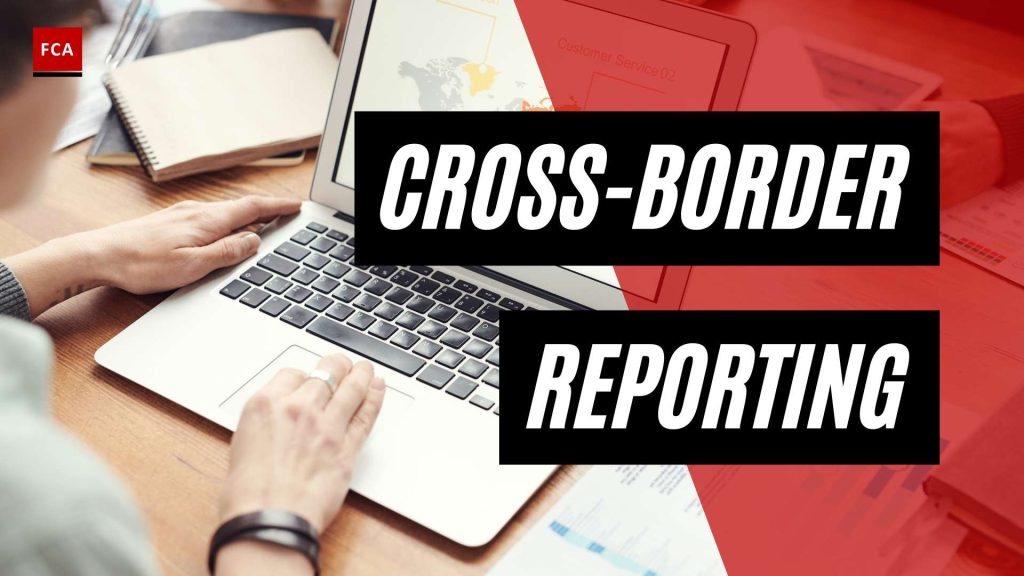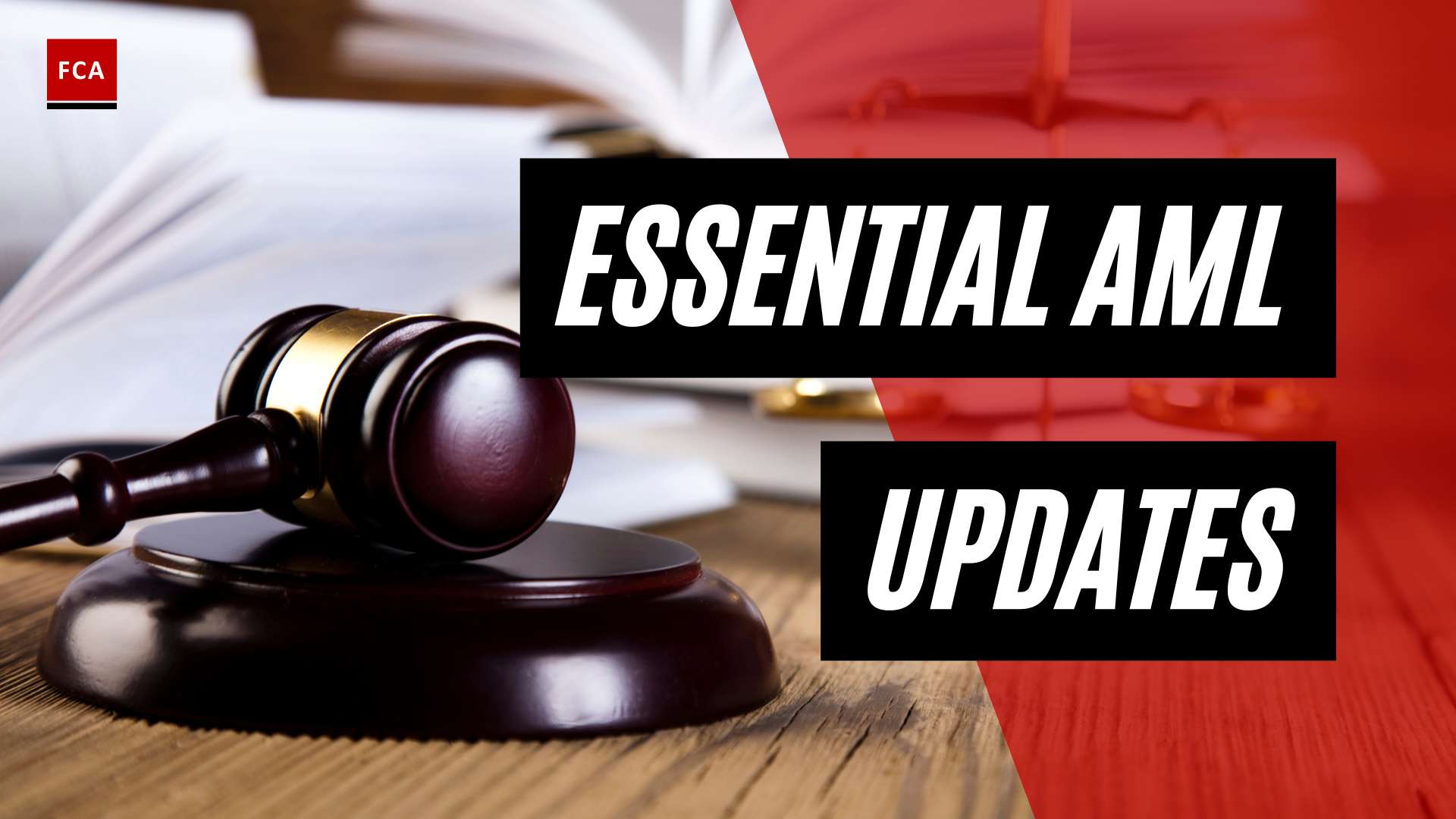Cross-Border AML Reporting Requirements
To ensure financial transparency and combat money laundering on a global scale, many jurisdictions have implemented cross-border Anti-Money Laundering (AML) reporting requirements. Understanding these regulations is crucial for professionals working in compliance, risk management, anti-money laundering, and anti-financial crime.
Understanding Cross-Border AML Regulations
Cross-border AML regulations are designed to detect and prevent money laundering and terrorist financing activities that involve multiple jurisdictions. These regulations establish reporting obligations and standards for financial institutions and other reporting entities to identify and report suspicious transactions that may indicate illicit financial activities.
The implementation of cross-border AML reporting requirements aims to enhance international cooperation and information sharing among regulatory authorities and law enforcement agencies. By exchanging relevant information, jurisdictions can collectively work towards combating money laundering and preserving the integrity of the global financial system.
Consequences of Non-Compliance
Non-compliance with cross-border AML reporting requirements can have severe consequences for financial institutions and reporting entities. The failure to adhere to these regulations can result in:
-
Hefty Fines: Regulatory authorities have the power to impose significant fines on entities that fail to comply with cross-border AML reporting requirements. These fines can amount to millions or even billions of dollars, depending on the jurisdiction and the severity of the non-compliance.
-
Reputational Damage: Non-compliance can lead to reputational damage for financial institutions, as it raises concerns about their commitment to combating money laundering and adhering to global AML standards. Reputational damage can lead to a loss of trust among customers, investors, and counterparties, potentially impacting the institution’s business opportunities.
-
Loss of Business Opportunities: Non-compliance with cross-border AML reporting requirements can result in restricted access to international markets and business opportunities. Financial institutions that do not meet the required AML standards may face limitations in establishing relationships with correspondent banks or conducting cross-border transactions.
-
Legal and Regulatory Actions: Non-compliance can trigger legal and regulatory actions, including investigations and enforcement actions by regulatory authorities. These actions may involve sanctions, license revocations, or even criminal prosecutions, depending on the severity of the non-compliance and the jurisdiction’s legal framework.
It is essential for financial institutions and reporting entities to prioritize compliance with cross-border AML reporting requirements to mitigate these risks and ensure the integrity of their operations. By doing so, they contribute to the global efforts to combat money laundering, protect the financial system, and uphold international AML compliance standards.
For a comprehensive understanding of cross-border AML reporting requirements in specific jurisdictions, refer to our articles on Canada AML Regulations United States AML Regulations and United Kingdom AML Regulations.
Key Cross-Border AML Regulations
To navigate the complex landscape of cross-border AML reporting requirements, it is crucial to understand the key regulations in different jurisdictions. Let’s explore three prominent cross-border AML regulations:
Proceeds of Crime (Money Laundering) and Terrorist Financing Act (Canada)
In Canada, the Proceeds of Crime (Money Laundering) and Terrorist Financing Act (PCMLTFA) plays a vital role in combating money laundering and terrorist financing. The PCMLTFA requires financial entities, including banks, credit unions, trust and loan companies, money services businesses, casinos, accountants and accounting firms, real estate brokers, and securities dealers, to report certain transactions and property without delay to the Financial Transactions and Reports Analysis Centre of Canada (FINTRAC) (Canada.ca). Compliance with the PCMLTFA is crucial for entities operating in Canada to ensure adherence to cross-border AML regulations.
Financial Crimes Enforcement Network (FinCEN) (United States)
In the United States, the Financial Crimes Enforcement Network (FinCEN) plays a pivotal role in combatting money laundering, terrorist financing, and other financial crimes. FinCEN collects and analyzes financial transaction information to identify suspicious activity and enforce compliance with the Bank Secrecy Act (BSA). The BSA, among other things, requires financial institutions to establish robust AML programs, report certain transactions, and maintain appropriate records (Namescan). Adhering to FinCEN’s regulations is crucial for entities operating in the United States to ensure cross-border AML compliance.
Financial Conduct Authority (FCA) (United Kingdom)
In the United Kingdom, the Financial Conduct Authority (FCA) is the primary regulator responsible for combating money laundering and terrorist financing. The FCA regulates the financial sector, ensuring that firms establish and maintain effective AML systems and controls. The FCA’s oversight extends to various entities, including banks, credit unions, money service businesses, investment firms, and insurance intermediaries. In addition to the FCA, the Office for Professional Body Anti-Money Laundering Supervision (OPBAS) enhances the country’s AML supervisory regime by overseeing the professional body AML supervisors. Compliance with the FCA’s regulations is vital for entities operating in the United Kingdom to meet cross-border AML requirements.
Understanding the key cross-border AML regulations in Canada, the United States, and the United Kingdom is crucial for organizations operating in these jurisdictions. By ensuring compliance with these regulations, entities can demonstrate their commitment to combating money laundering, terrorist financing, and other illicit activities on an international scale.
Reporting Obligations and Penalties
Complying with cross-border AML reporting requirements is crucial for combating money laundering and ensuring financial transparency on a global scale. Failure to meet these obligations can have severe consequences, including hefty fines, reputational damage, and loss of business opportunities. It is imperative for reporting entities to understand their responsibilities and the potential penalties for non-compliance.
Reporting Entities and Designations
Reporting entities play a vital role in the cross-border AML framework. These entities, such as financial institutions, money service businesses, and designated non-financial businesses and professions, are required to report suspicious transactions, large cash transactions, and other relevant financial activities to the appropriate regulatory authorities.
In Canada, reporting entities are governed by the Proceeds of Crime (Money Laundering) and Terrorist Financing Act (PCMLTFA). Failure to comply with the reporting obligations outlined in the Act may result in criminal charges for non-compliance offenses or administrative monetary penalties (AMPs) (FINTRAC). FINTRAC, the regulatory authority in Canada, has the power to impose AMPs on reporting entities that fail to meet their obligations. The details of these penalties are made public by FINTRAC to ensure transparency and accountability (FINTRAC).
Administrative Monetary Penalties (AMPs)
Administrative Monetary Penalties (AMPs) are a significant form of penalty for non-compliance with cross-border AML reporting requirements. These penalties are designed to deter reporting entities from failing to meet their obligations and to promote a culture of compliance.
Under the PCMLTFA in Canada, FINTRAC has the authority to issue AMPs to reporting entities that do not comply with the Act. The penalties vary depending on the severity and frequency of non-compliance. The amount of an AMP can range from CAD 1 to CAD 100,000 for an individual and CAD 1 to CAD 500,000 for an entity. It is important for reporting entities to take these penalties seriously and ensure they have robust AML compliance programs in place to avoid such consequences.
Information Disclosure and Law Enforcement Cooperation
In order to effectively combat money laundering and financial crimes, information sharing and cooperation between regulatory authorities and law enforcement agencies are crucial. Reporting entities have an obligation to disclose information to the appropriate authorities when there are reasonable grounds to suspect non-compliance offenses.
In Canada, FINTRAC has the power to disclose information to law enforcement agencies when there are reasonable grounds to believe that the information would be useful in investigating or prosecuting non-compliance offenses under the PCMLTFA. This disclosure can occur when FINTRAC identifies non-compliance or receives voluntary information from law enforcement regarding non-compliance (FINTRAC). Such cooperation between regulatory authorities and law enforcement agencies strengthens the overall effectiveness of the AML framework.
Understanding the reporting obligations and potential penalties associated with cross-border AML regulations is essential for reporting entities. By adhering to these requirements and implementing robust AML compliance programs, entities can contribute to the global fight against money laundering and ensure the integrity of the financial system.
Compliance Considerations for Cross-Border Payments Firms
When it comes to cross-border payments, compliance with anti-money laundering (AML) regulations is of utmost importance. Cross-border payments firms must navigate a complex landscape of regulatory requirements to ensure they meet their obligations. Here are some key considerations for these firms:
Licensing and Registration Requirements
Firms engaged in cross-border payments must be well-versed in the relevant licensing and registration requirements in all jurisdictions where they operate. This includes obtaining the necessary licenses and registrations from regulatory authorities. It is essential to understand the local nuances that can impact customer due diligence measures and compliance practices. Each jurisdiction may have its own specific requirements and regulations. Staying updated with the guidance provided by regulatory authorities, such as the Financial Action Task Force (FATF), is crucial for compliance.
Evaluating Anti-Financial Crime Approach of Partners
In the realm of cross-border payments, partnerships and collaborations are common. When engaging with partners, it is vital to evaluate their anti-financial crime approach. This evaluation includes assessing their technology, people, and policies. Understanding the ownership structures of partner organizations is also essential to ensure consistent compliance between cooperating firms. Collaborating with partners who prioritize and maintain robust AML compliance measures helps mitigate operational and compliance risks (ComplyAdvantage).
Understanding Financial Crime Risks
Firms engaged in cross-border payments need to have a deep understanding of the financial crime risks associated with such transactions. This includes risks related to fraud, money laundering, terrorist financing, and sanctions evasion. Monitoring guidance from authorities and sector publications can provide valuable insights into red flag indicators and criminal typologies. By staying informed and proactive, firms can identify and mitigate potential risks more effectively. Conducting regular risk assessments is essential to ensure compliance with global AML standards and local regulations (ComplyAdvantage).
To enhance AML compliance and streamline processes, cross-border payments firms can consider leveraging Regtech solutions. Regtech solutions, through automation and advanced technologies, can assist in customer due diligence, transaction monitoring, and reporting. However, careful consideration and evaluation are necessary when deploying such systems to ensure desired outcomes and alignment with regulatory requirements (ComplyAdvantage).
Furthermore, it is crucial for compliance teams to prioritize long-term goals over short-term objectives. This involves developing a technology roadmap, assessing vendors, managing stakeholders, and securing budget approvals to support the transition to automation. By strategically planning and aligning resources, cross-border payments firms can enhance their AML compliance efforts and adapt to evolving regulatory requirements (ComplyAdvantage).
Navigating the landscape of cross-border AML compliance requires a comprehensive understanding of licensing requirements, evaluating partners’ approach to financial crime, and staying informed about financial crime risks. By effectively addressing these considerations, cross-border payments firms can mitigate compliance risks and contribute to a strong global AML framework.
Enhancing AML Compliance for Cross-Border Payments Firms
When it comes to cross-border AML compliance, cross-border payments firms face unique challenges and responsibilities. To ensure effective compliance with anti-money laundering regulations, these firms can employ several strategies. This section explores the role of Regtech solutions, the importance of prioritizing long-term goals, and the significance of developing a technology roadmap for automation transition.
Role of Regtech Solutions
Regtech solutions, which leverage technology to streamline regulatory compliance processes, play a crucial role in enhancing AML compliance for cross-border payments firms. By automating various compliance tasks, such as customer due diligence, transaction monitoring, and suspicious activity reporting, Regtech solutions can improve efficiency and effectiveness.
The use of Regtech solutions allows firms to leverage advanced technologies such as artificial intelligence and machine learning to analyze vast amounts of data and identify potential risks and anomalies. These solutions can help reduce manual errors, enhance accuracy, and provide real-time monitoring capabilities. However, it is important to carefully evaluate and select Regtech solutions that align with the specific compliance needs and regulatory requirements of cross-border payments firms.
Prioritizing Long-Term Goals
Compliance teams handling AML for cross-border payments should prioritize long-term goals over short-term objectives. This involves developing a comprehensive strategy that aligns with the organization’s overall risk management framework. Prioritizing long-term goals emphasizes the importance of having a technology roadmap, assessing vendors, managing stakeholders, and securing budget approvals to support the transition to automation.
By setting clear objectives and milestones, cross-border payments firms can ensure that their AML compliance efforts are sustainable and adaptable to evolving regulatory requirements. This includes establishing robust governance structures, conducting regular risk assessments, and continuously monitoring and updating compliance programs.
Technology Roadmap and Automation Transition
Developing a technology roadmap is a critical component of enhancing AML compliance for cross-border payments firms. The roadmap outlines the organization’s vision for leveraging technology to streamline compliance processes and improve efficiency. It should consider the specific needs and challenges of cross-border payments, such as diverse regulatory landscapes and complex transaction flows.
The technology roadmap should encompass the evaluation and selection of appropriate Regtech solutions, integration with existing systems, and the implementation of automation technologies. The transition to automation should be carefully planned and executed to ensure seamless integration and minimize disruptions to ongoing operations. It is crucial to involve key stakeholders, including compliance teams, IT departments, and senior management, to ensure alignment and successful implementation.
By embracing Regtech solutions, prioritizing long-term goals, and developing a technology roadmap for automation transition, cross-border payments firms can enhance their AML compliance efforts. These strategies enable firms to effectively navigate the complexities of cross-border regulatory requirements while ensuring the integrity and security of their payment systems.
Global AML Regulations and Organizations
In the realm of cross-border AML reporting requirements, several prominent organizations and international bodies play a crucial role in shaping global standards and regulations. These organizations strive to combat money laundering and terrorist financing on a global scale. Let’s explore three key entities: the Financial Action Task Force (FATF), the International Monetary Fund (IMF), and Civil Society Organizations (CSOs).
Financial Action Task Force (FATF)
The Financial Action Task Force (FATF), established in 1989, is a global intergovernmental body that sets international standards and promotes the implementation of legal, regulatory, and operational measures to combat money laundering, terrorist financing, and other related threats. Although the FATF’s recommendations are not legally binding, they serve as a framework for member nations to develop effective anti-money laundering (AML) and counter-terrorism financing (CFT) policies, laws, and regulations. The FATF’s 40+9 Recommendations provide guidance on AML/CFT measures, covering areas such as customer due diligence, reporting and recordkeeping, and international cooperation. To learn more about global AML compliance standards, visit our article on international AML compliance.
International Monetary Fund (IMF)
The International Monetary Fund (IMF) actively contributes to the global fight against money laundering and the financing of terrorism. Over the past two decades, the IMF has been involved in shaping global AML/CFT policies by providing policy advice, capacity development programs, technical assistance, and contributing to the global AML/CFT architecture through standard setting and country assessments. The IMF works closely with member countries to help them strengthen their AML/CFT frameworks, enhance risk-based approaches, and improve compliance with international standards. The IMF’s efforts aim to promote financial integrity, stability, and security. To learn more about the IMF’s involvement in AML/CFT initiatives, refer to their official website.
Civil Society Organizations (CSOs)
Civil Society Organizations (CSOs) play an integral role in advocating for transparency, accountability, and effective AML/CFT measures. CSOs encompass a wide range of groups, including non-governmental organizations, community-based organizations, and professional associations. These organizations actively engage in anti-money laundering and financial crime-related discussions, providing valuable insights and perspectives. CSOs globally emphasize the need for increased focus on illicit financial flows, beneficial ownership transparency efforts, and addressing weaknesses in AML/CFT frameworks, particularly in advanced economies. They also call for closer engagement with national and global CSOs to foster collaboration and knowledge sharing. The active involvement of CSOs contributes to the development and implementation of robust AML/CFT measures globally.
By collaborating with organizations like the FATF, the IMF, and CSOs, countries can work towards harmonizing cross-border AML reporting requirements and strengthening their AML/CFT frameworks. These entities collectively strive to enhance global cooperation, improve regulatory frameworks, and combat the ever-evolving threats posed by money laundering and terrorist financing.
AML Regulations in Specific Jurisdictions
To ensure effective anti-money laundering (AML) compliance in cross-border transactions, it is essential to understand the specific regulations and requirements of different jurisdictions. Here, we will explore the AML regulations in Canada, the United States, and the United Kingdom.
Canada AML Regulations
In Canada, the key AML legislation is the Proceeds of Crime (Money Laundering) and Terrorist Financing Act (PCMLTFA). Financial entities such as banks, credit unions, trust and loan companies, money services businesses, casinos, accountants and accounting firms, real estate brokers, and securities dealers are required to comply with the PCMLTFA (Canada.ca).
Under the PCMLTFA, financial entities must report certain transactions and property to the Financial Transactions and Reports Analysis Centre of Canada (FINTRAC) without delay. Additionally, reporting entities are required to submit a cross-border electronic funds transfer report (EFT) to FINTRAC for each EFT of $10,000 or more sent or received in the course of their business. This reporting requirement applies not only to EFTs that occur within Canada but also to those that take place outside of Canada but involve Canadian entities or transit through Canada (Canada.ca).
United States AML Regulations
In the United States, AML regulations are enforced by several key regulatory bodies. The Financial Crimes Enforcement Network (FinCEN) is responsible for combating money laundering and terrorist financing. The Financial Industry Regulatory Authority (FINRA) acts as a self-regulatory organization for the financial services industry. Other regulators include the Office of Foreign Assets Control (OFAC), Federal Trade Commission (FTC), Consumer Financial Protection Bureau (CFPB), U.S. Securities and Exchange Commission (SEC), Commodity Futures Trading Commission (CFTC), Office of the Comptroller of the Currency (OCC), National Credit Union Administration (NCUA), and state legislatures (Unit21).
Financial institutions in the United States are subject to various AML requirements, including customer due diligence, suspicious activity reporting, and compliance with OFAC sanctions. These regulations aim to prevent money laundering, terrorist financing, and other financial crimes.
United Kingdom AML Regulations
In the United Kingdom, the Financial Conduct Authority (FCA) is the primary regulator responsible for combating money laundering and terrorist financing. The FCA oversees the financial sector’s compliance with AML regulations and is supported by the Office for Professional Body Anti-Money Laundering Supervision (OPBAS) to enhance the country’s AML supervisory regime (Namescan).
Under the UK AML regulations, financial institutions must conduct proper customer due diligence, maintain effective internal controls, and report suspicious transactions. The regulations also require firms to have robust systems and controls in place to identify and mitigate the risks associated with money laundering and terrorist financing.
Understanding the AML regulations in specific jurisdictions is crucial for cross-border payments firms to establish compliant systems and processes. By adhering to these regulations, financial entities can contribute to global efforts in combating money laundering and safeguarding the integrity of the financial system.
Compliance Requirements for Cross-Border Wire Transfers
When it comes to cross-border wire transfers, financial institutions have specific compliance requirements to ensure adherence to anti-money laundering (AML) regulations. These requirements are essential in preventing money laundering and terrorist financing. In this section, we will explore the key compliance requirements for cross-border wire transfers, including recordkeeping and information requirements, establishing effective AML programs, and the importance of Suspicious Activity Reports (SARs) and Geographic Targeting Orders (GTOs).
Recordkeeping and Information Requirements
Financial institutions engaged in cross-border wire transfers must comply with the Recordkeeping Rule, which requires them to maintain reliable information for funds transfers over $3,000. This information should be available for retrieval when requested by the Financial Crimes Enforcement Network (FinCEN) or other appropriate agencies. The recordkeeping should include details such as the originator’s name, address, and account number, as well as the beneficiary’s name and the recipient’s financial institution. This information should be retained for five years after the date of the transfer (FinCEN).
By adhering to these recordkeeping and information requirements, financial institutions can contribute to the transparency and traceability of cross-border wire transfers, making it easier to detect and prevent illicit financial activities.
Establishing Effective AML Programs
To ensure compliance with AML regulations in the context of cross-border wire transfers, financial institutions must establish and maintain effective AML programs. These programs should include internal controls, independent testing for compliance, designated personnel for compliance duties, and training for employees to recognize and respond to suspicious activities.
By implementing robust AML programs, financial institutions can effectively identify and mitigate the risks associated with cross-border wire transfers. These programs play a crucial role in safeguarding the global financial system from money laundering and terrorist financing activities.
Suspicious Activity Reports (SARs) and Geographic Targeting Orders (GTOs)
Financial institutions have an obligation to file Suspicious Activity Reports (SARs) when they have reason to suspect that a transaction involving $5,000 or more is suspicious or related to illegal activities. SARs are vital tools in combating illicit financial activities, as they enable law enforcement agencies to investigate and take appropriate actions.
Geographic Targeting Orders (GTOs) are another important aspect of compliance for cross-border wire transfers. These orders require financial institutions to report certain transactions based on applicable thresholds. Compliance with GTO requirements is crucial, as non-compliance can lead to regulatory actions and fines.
Financial institutions must stay vigilant and ensure that they abide by the reporting requirements outlined in SARs and GTOs. By doing so, they contribute to the collective efforts in combating money laundering and terrorist financing, fostering a more secure global financial environment.
Understanding and adhering to these compliance requirements is crucial for financial institutions engaged in cross-border wire transfers. By maintaining accurate records, establishing effective AML programs, and fulfilling reporting obligations, financial institutions play a vital role in safeguarding the integrity of the global financial system.








